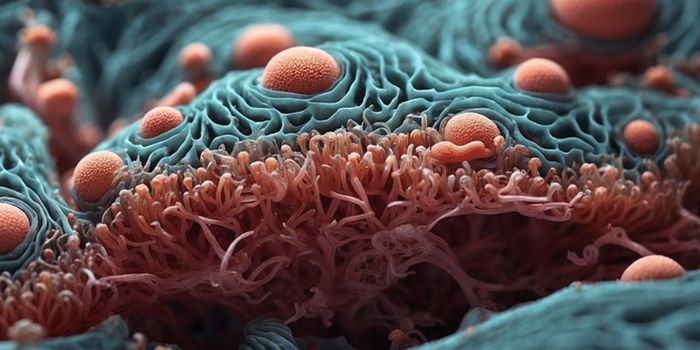Viruses can be involved in the development of serious diseases. A case in point is liver cancer, which often develops in an organ that has been weakened by hepatitis B or C virus.

Researchers at
Inserm, the Paris Public Hospitals (AP-HP), Paris Descartes University, Paris 13 University (USPC) and Paris Diderot University have identified the role of a new virus in a rare type of liver cancer. This study, based on follow-up and observation of 193 patients, is published in Nature Genetics and reported in
Drug Discovery & Development.
More than 8,000 new individuals are diagnosed with liver cancer every year. It mainly affects men and is a major cause of death worldwide. Of the different types, hepatocellular carcinoma usually occurs in a liver already damaged by illness. The liver may have been weakened by excessive alcohol consumption, obesity or chronic viral infection by hepatitis B or C viruses, causing irreversible liver lesions, ultimately culminating in cirrhosis.
While cirrhosis patients usually undergo regular tests to detect cancer, in 5 percent of cases, liver cancer occurs in patients who had not reported cirrhosis. Thus, the reason for developing the cancer is a mystery. Jessica Zucman-Rossi and her staff at Inserm Unit 1162, Functional Genomics of Solid Tumors, took a special interest in these patients to discover the risk factors that had contributed to the development of their cancer.
According to the report, “In the genome of tumor cells of 11 patients, the scientists observed the insertion of a viral DNA segment from adeno-associated virus type 2, known as AAV2. This virus has been considered non-pathogenic for humans until now. In order to confirm the virus's involvement in the cancer, the research team compared tumor tissues with normal tissues. They thus confirmed their hypothesis: the integration of viral DNA was found more often in tumor cells than in healthy cells in these 11 patients. Moreover, eight of these patients did not have cirrhosis, and six of them presented no known risk factors for liver cancer.
When they studied these malignant cells in greater detail, the researchers discovered that the virus, when putting its DNA into the genome of the patient's cells, targets genes important in cell proliferation. The researchers have demonstrated that AAV2 leads to excessive expression of these genes that may cause tumor development.
In this work, the researchers have identified the involvement of AAV2 virus, which used to be considered harmless, in the occurrence of hepatocellular carcinoma, especially in the rare cases of cancer that develop without cirrhosis or another identified cause. The researchers caution, "AAV2 is often used as a vector in gene therapy. Although the insertion of its DNA into tumor promoting genes is rare, and probably a chance event, precautions must be taken regarding the use of this virus."





















































